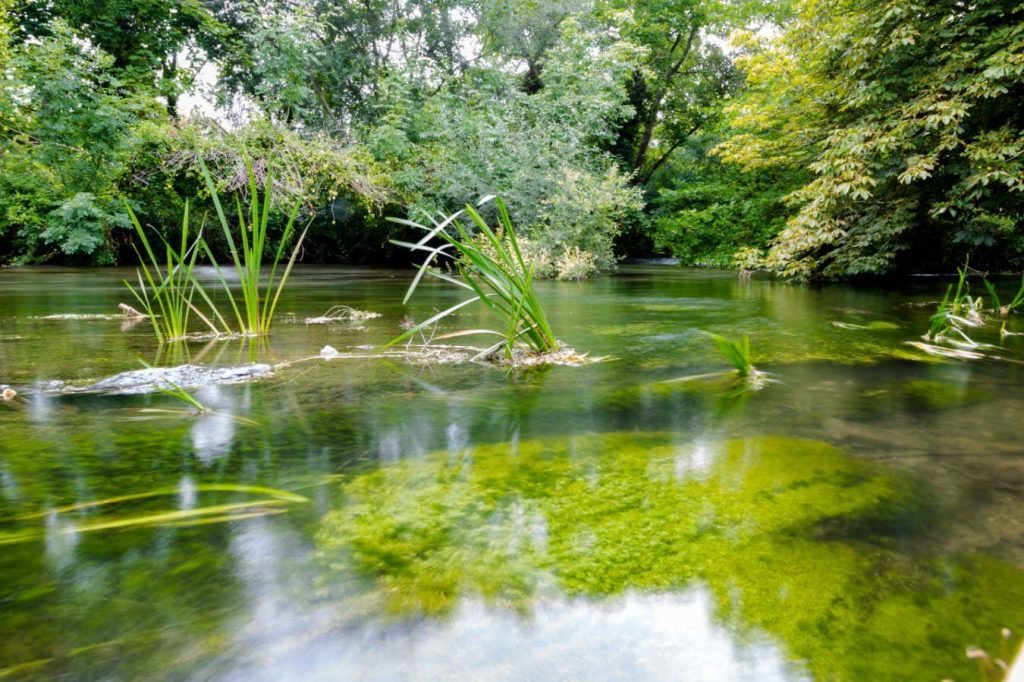The river Itchen is a chalk stream in Hampshire, UK
Tommy Lee Walker/Shutterstock
A plan to restore chalk streams in England, a vital type of river that plays host to species such as kingfishers, mayflies and dragonflies, may take decades despite millions of pounds worth of investment.
England is home to 85 per cent of the world’s chalk streams – rivers that rise from springs found on 60-million-year-old chalk bedrock and have particularly nutrient-rich water. Of the 220 chalk streams in England, only 17 per cent are in good ecological health, according to the Environment Agency, due to a range of issues such as physical modification, sewage overflow and agricultural pollution.
Chalk streams are commonly over-exploited because their pure water is easy to abstract for public water supply, says Tony Juniper at advisory body Natural England. “If you’re a water company, this is a fantastic product.” he says. For example, Cambridge Water takes its entire water supply from chalk streams.
Advertisement
To address damage to chalk streams, the UK government has launched a strategy that will see all of them designated as water stressed, meaning water firms must consider whether they should introduce compulsory water metering for their customers.
The strategy also makes chalk streams a high priority for river restoration schemes. Chalk streams, like the majority of rivers around the country, have been heavily modified. “Many have had gravel removed for building works and had weirs and mills put into them over time,” says Juniper, which changes the river flow.
For the financial year between 2022 and 2023, there were 77 chalk stream projects funded at a total cost of £1.9 million in England. Fines paid by water firms for polluting will be directly used to help fund these projects, says Environment Agency chair Alan Lovell. This money probably isn’t enough to restore all England’s chalk streams, says Charles Rangeley-Wilson, a conservationist and chair of the chalk stream strategy group, but it is enough to kick-start this programme and make a real difference in key rivers.
Restoring chalk streams will make them far more resilient to climate change, says Rangeley-Wilson. But dealing with over-extraction requires far more long-term solutions, especially as more people are moving to southern England, which has the highest concentration of chalk streams. There are no quick fixes, says Rangeley-Wilson. “This is probably a multi-decadal programme.”
Topics:

